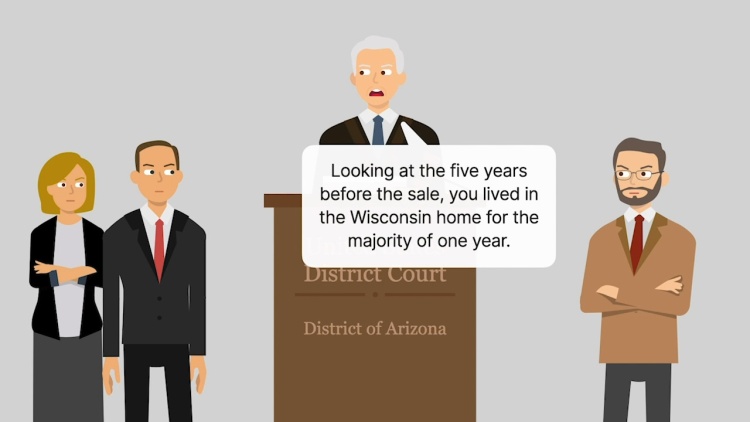Guinan v. United States
United States District Court for the District of Arizona
2003-1 U.S.T.C. (CCH) P50,475 (2003)

- Written by Rich Walter, JD
Facts
Between 1993 and 1998, James Guinan and Jean Guinan (plaintiffs) owned a house in Wisconsin. The Guinans also spent time elsewhere, first at a house in Georgia and later at a house in Arizona. Over those five years, the Guinans spent 847 days at the Wisconsin house, 563 days at the Georgia house, and 375 days at the Arizona house. The Guinans spent a majority of their time in Wisconsin during only one of the five years. The Wisconsin house was the largest of the three residences, but the Guinans received mail, did their banking, and registered vehicles at each house. The Guinans voted, filed state-tax returns, and took out drivers’ licenses in Georgia and Arizona, but not in Wisconsin. The Guinans engaged in documented recreational and other activities in both Wisconsin and Georgia. One year, to satisfy a subsequently repealed statute, the Guinans identified the Arizona house as their principal residence. The Guinans’ children did not maintain principal residences in Wisconsin, Georgia, or Arizona. In 1998, the Guinans sold the Wisconsin house and realized a gain, on which they paid $45,000 of income tax. The Guinans brought an action against the federal government (defendant) for a refund, because by statute, a gain on the sale of a principal residence held for least five years was excludable from taxable income. The federal government denied that the Guinans were eligible for this exclusion, because they had not lived in the Wisconsin house for a majority of the time between 1993 and 1998. The Guinans moved for summary judgment, and the government cross-moved for summary judgment.
Rule of Law
Issue
Holding and Reasoning (Rosenblatt, J.)
What to do next…
Here's why 907,000 law students have relied on our case briefs:
- Written by law professors and practitioners, not other law students. 47,100 briefs, keyed to 996 casebooks. Top-notch customer support.
- The right amount of information, includes the facts, issues, rule of law, holding and reasoning, and any concurrences and dissents.
- Access in your classes, works on your mobile and tablet. Massive library of related video lessons and high quality multiple-choice questions.
- Easy to use, uniform format for every case brief. Written in plain English, not in legalese. Our briefs summarize and simplify; they don’t just repeat the court’s language.





